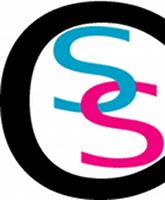Arizona State University
ICAP is a theory of active learning that differentiates students’ engagement based on their behaviors within the learning environment. ICAP postulates that Interactive engagement, demonstrated by collaborative behaviors, is superior for learning than Constructive engagement, indicated by generative behaviors. Both kinds of engagement exceed the benefits of Active or Passive engagement, marked by physically manipulative and attentive behaviors, respectively. This paper discusses a five-year project that attempted to translate ICAP into a theory of instruction using five successive measures, assessing: (a) teachers’ understanding of ICAP after completing an online module, (b) their success at designing lesson plans using different ICAP modes, (c) fidelity of teachers’ classroom implementation, (d) the level of students’ enacted behaviors, and (e) students’ learning outcomes. Teachers had the most success, in terms of student learning, when requiring Constructive behavior. We discuss teachers’ overall knowledge transfer, and postulate why Interactive engagement was difficult for teachers to elicit in the classroom.
Michelene (Micki) Chi is Foundation Professor and Regents’ Professor at Arizona State University (ASU), and the Dorothy Bray Endowed Professor in the Mary Lou Fulton Teachers College at ASU. A cognitive and learning science researcher, Dr. Chi’s Learning and Cognition Lab carries out three lines of funded research on how students learn. Dr. Chi has published widely and her work has been cited well over 50,000 times. She has received numerous awards, including the Distinguished Contributions to Research in Education Award from the American Educational Research Association in 2016, and the prestigious David E. Rumelhart Prize from the Cognitive Science Society in 2018. She is also an elected member of the National Academy of Education, as well as the American Academy of Arts and Sciences.
